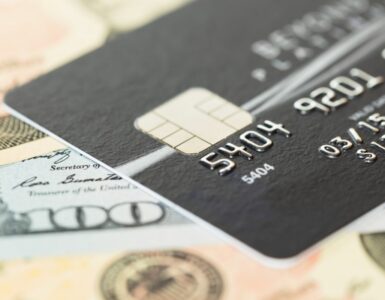In an economy that operates cashless, contactless scanning is the key to fast and streamlined transactions. Nonetheless, for many people, the prevalence of cashless transactions has constantly raised security threats. And the question most of us ask ourselves is whether criminals can siphon money from our accounts using card readers and identity theft.
RFID products give a solution to such problems with wallets and passport covers that provide RFID scanning limits. Identity theft lives with you long after your details have been stolen, hence why people are more conscious of such matters. Once a person steals your passport or credit card and gets a hold of your personal information, they may impersonate you for a long time and make withdrawals from your account. Therefore, to avoid such criminal manipulation, people opt for RFID for protection. But the big question remains, do you really need RFID blocking?
Do You Need RFID?
RFID can properly prevent the scanning function on a card or passport. Every material currently supports RFID technology, from wallets to fanny packs which is a marketing point for some items. You do not have to particularly invest in a designer bag with a layer of carbon fiber or aluminium to protect your credit cards and other items. Studies have suggested that a thick layer of tin foil from your kitchen can serve the same purpose. Whether you decide to buy one or make one at home, the question you need to ask yourselves is whether you need it and does RFID related crime exist?
We have seen contactless crime hitting the headlines now and then. Such headlines have made the majority of the population anxious, hence why most people are opting for solutions such as RFID to protect them. The issue is these theories surrounding RFID do not give compelling reasons for RFID blocking specifically.
If a person incurs losses from contactless skimming, the chances are that their debit or credit card was stolen from them physically. And in such cases, the perpetrator does not get away with the money since any purchases done with that contactless card are capped at a low sum before huge damage is done.
A Research done by Action Fraud and UK finance, shows that the current menace of skimming attacks is minimal. Criminals keep on upgrading their techniques, and thus, RFID may not be useful in the long run. Additionally, for now, there is little evidence that skimming is a big threat.
Does RFID Protect You From Identity Theft?
It is very understandable to be anxious about identity theft; after all, it can shift your life within a snap. You might be a wanted criminal if your details are used to commit a crime. However, RFID does not solve that. The idea that someone can scan nearby credit cards and get personal details is tenable. And once the information lands in the wrong hands it can be difficult to come back from that.
Identity theft is a valid concern, and how people can manipulate the system to get your information; however, RFID cannot sort it out. Of course, you should frequently assess the threat levels but your credit cards or passports are not vulnerable to any contactless interference. Here are some of the reasons why such attacks rarely happen;
- Credit cards use a one-time transaction code that is heavily encrypted when scanned.
- The scannable information on a card is not what exactly the perpetrators are looking for
- To steal a person’s data, a thief will somehow have to get close to their target, which is quite risky.
It is also quite hard to scan data from the recently generated passports since they already have an RFID installed. Therefore you will not need another RFID blocking material.
Alternative Security Methods
Instead of using RFID blocking, you can opt for other more effective security methods such as data encryption. Criminals have evolved and are aware that they do not need to get close to you to steal your data. From social engineering to phishing, there are plenty of ways to reach your data hence the reason why you need a stronger security method to protect you from any form of online identity theft. Encryption is a stronger method compared to the RFID since a thief will have to go through the trouble of decoding the encrypted data, which sometimes may be difficult for them.
Final take
As much as RFID gives you that sense of security, it is fallacious to believe that it can cover all aspects of skimming and identity theft. As technology evolves, fraudsters also find ways to advance their fraudulent activities. Hence it lowers the chances of having RFID crimes. Therefore you need to find other better security methods that are equally affordable such as encryption which is relatively cheaper.









